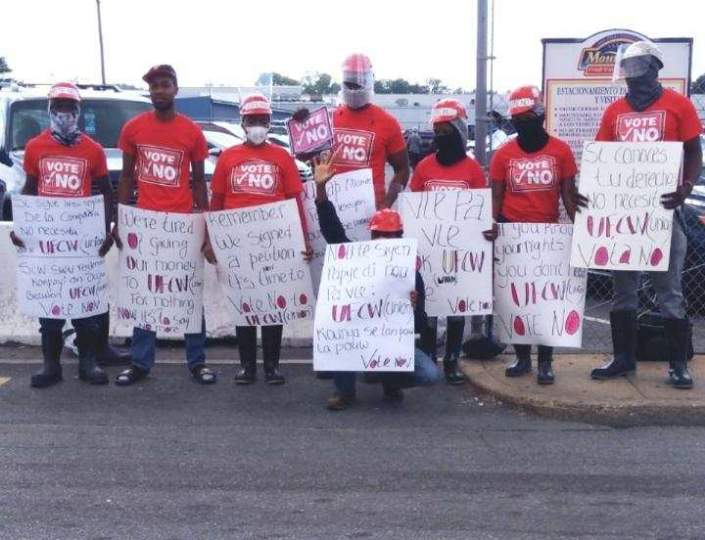Puerto Rico Police Bureau Employees Win at District Court; Beat Union Scheme That Swiped Health Benefit from Dissenting Employees
Employees successfully defend right under Janus v. AFSCME to refrain from supporting unwanted union
Para leer este articulo en Espanol, haga clic aqui.
San Juan, PR (September 26, 2024) – Eleven civilian employees of the Puerto Rico Police Bureau (PRPB) have won a favorable decision in their federal class action lawsuit against their employer and the Union of Organized Civilian Employees. The lawsuit charged both entities with illegally discriminating against employees by stripping them of an employer-provided health benefit because they refused to join the union. The employees, who argued that this union gambit violated their and other PRPB employees’ First Amendment right to abstain from unwanted union affiliation, received free legal aid in their case from National Right to Work Legal Defense Foundation staff attorneys.
The plaintiffs, Vanessa Carbonell, Roberto Whatts Osorio, Elba Colon Nery, Billy Nieves Hernandez, Nelida Alvarez Febus, Linda Dumont Guzman, Sandra Quinones Pinto, Yomarys Ortiz Gonzalez, Janet Cruz Berrios, Carmen Berlingeri Pabon, and Merab Ortiz Rivera, filed their lawsuit at the U.S. District Court of Puerto Rico in 2022. They invoked their rights under the 2018 Foundation-won Janus v. AFSCME Supreme Court decision, in which the Justices held that compelling public employees to join or fund a union violates the First Amendment. Janus also established that union officials can only take union dues from a public employee who has waived his or her First Amendment right not to pay.
The District Court agreed with the plaintiffs in a September 19 decision. It found that the PRPB had indeed taken away a health benefit from the employees after they exercised their Janus right not to join or pay dues to the Union of Organized Civilian Employees, a union they didn’t want and never asked for. “This is either retaliation for exercise of non-union members’ post-Janus non-associational rights under the First Amendment under the Constitution or simply discrimination,” said the Court.
“The [PRPB] may neither retaliate for disassociation or non-support of the public sector union, nor can it adopt — or as here interpret — a [union contract] in a manner that permits discrimination against non-union members,” the Court continued.
Police Bureau Limited Access to Healthcare Based on Employee Dissent from Union
According to the plaintiff’s original lawsuit, they all exercised their Janus right to opt out of the union at various points after the 2018 Janus decision. They each began noticing that as dues ceased coming out of their paychecks, they also stopped receiving a $25-a-month employer-paid benefit intended to help employees pay for health insurance.
“[T]he Union, through its president, Jorge Méndez Cotto, asked PRPB to stop awarding the $25 monthly additional employer contribution to any bargaining unit member who objected to [forced] membership…,” the complaint said.
“Plaintiffs are ready, willing, and able to purchase additional and higher quality health insurance benefits with the additional employer contribution that is being denied to them,” read the complaint. “But for the above-described discriminatory policy, they would purchase better quality health insurance.”
District Court Decision Orders Union and Employer to Stop Discriminatory Scheme
The District Court’s decision, in addition to declaring that the gambit by PRPB and the Union of Organized Civilian Employees is unconstitutional, orders an injunction to stop PRPB officials from continuing to withhold the benefit from Carbonell and the other employees.
“Janus enshrined a very simple principle: That union officials need to convince public employees to support their organization and activities voluntarily, and using government power to force such support is an obvious infringement of First Amendment free association principles,” commented National Right to Work Foundation President Mark Mix. “Diminishing Ms. Carbonell and her coworkers’ access to healthcare just because they disagreed with the union’s agenda is a heinous violation of that principle, and Foundation attorneys were happy to assist them in their victory over that scheme.”










